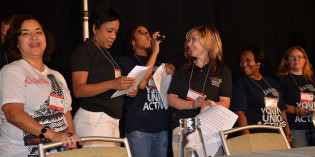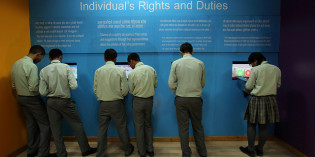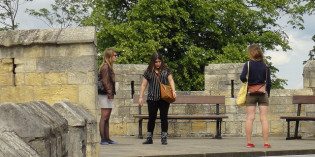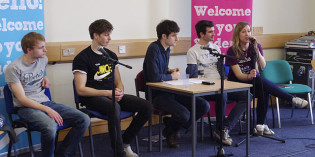Tag: Beyond the Youth Citizenship Commission

The Manifesto for Youth: Young people are demanding to be heard in the General Election
Young voters are very likely to turn out to vote in smaller numbers than older voters at the General Election, with party politics achieving little to no cut through with younger age groups. Despite this, there are signs of encouragement, according to Andy Mycock, who was involved in Huddersfield University’s Manifesto for Youth. Since the […]

If Local Authorities are to succeed in increasing voter registration amongst young people, they must make use of direct recruitment
We are seeing increasing attention given to the issue of young people’s electoral participation. Electoral registration, the first step in the voting process, is one area in which activities to encourage a more electorally active youth might be targeted. Using data and feedback from a Cabinet Office evaluation of local authority activities aimed at maximising […]

Whatever the challenges and drawbacks, young women should continue to engage in politics
Young women often find it difficult to have their voices heard in what continues to be an older and male dominated sphere. Rosie Corrigan, the country’s youngest Mayor, argues that women have much to contribute, and despite the various drawbacks, challenges and restrictions that face young women attempting to create genuine change in their communities, […]

Compulsory political education is a must if we are to stem the flow of disengagement from politics
It is little wonder that young people continue to be turned off politics, argues Matteo Bergamini, when politics is something that is generally not discussed at school. He argues that we need dedicated political education to help young people understand the system that they are expected to become full participants in upon reaching the age […]

The task for those who care about democracy is to translate the new ways of political engagement into effective action
Over recent weeks, Democratic Audit has been looking at ways to re-engage young people with politics for our ‘Beyond the Youth Citizenship Commission’ in collaboration with Huddersfield University’s Dr Andy Mycock. In the latest instalment of this series, Chloe Smith MP argues that though the internet cannot replace politics, it can be a useful supplement, with online-based youth […]

Young people support the democratic process, but do not feel that they can exercise real influence over decision-making
As part of our series on youth participation, in this post Matt Henn and Nick Foard share findings from survey research into young people’s views of politics. They show that young people are supportive of the democratic process and want to participate in. However, the experience of elections is frustrating, with politicians seen as remote and self-serving. They […]

Political parties need to better integrate young members and give them the chance to influence policy
Most major political parties have youth wings, run by their young members. But with party membership declining, Emily Rainsford has considered how parties might better engage their young members and recruit others. In this post, part of our new series on youth participation, she argues for more integration of young party members into decision-making structures. Similar PostsYoung […]

Young ethnic minority people are citizens to be engaged in politics, not a problem group
As part of our series on youth participation, in this post Therese O’Toole considers how young people from ethnic minorities engage in politics. She argues that this group is not more likely to be disaffected from politics, only from mainstream forms of politics, and tend to engage in more ‘DIY’ forms of activism. Traditional institutions need to respond to […]

Young women face gender-specific challenges that limit their political participation
Young women aged 18-24 are likely less to take part in elections than their male counterparts. As part of our new series on youth participation, Jacqui Briggs explores the reasons for this, showing how women face specific barriers because of their gender and are under-represented throughout the system. She argues that politicians need to address […]



 Democratic Audit's core funding is provided by the Joseph Rowntree Charitable Trust. Additional funding is provided by the London School of Economics.
Democratic Audit's core funding is provided by the Joseph Rowntree Charitable Trust. Additional funding is provided by the London School of Economics.